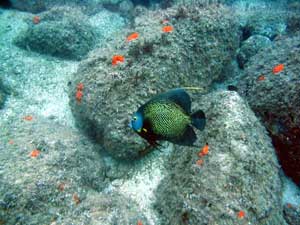 The ocean absorbs millions of tons of carbon dioxide each day, making it increasingly acidic. Scientists believe this could disrupt the entire marine food chain.
The ocean absorbs millions of tons of carbon dioxide each day, making it increasingly acidic. Scientists believe this could disrupt the entire marine food chain.
The oceans provide life to Earth, creating a green planet. However, in the future, oceans will face a new threat related to climate change. The culprit is carbon dioxide emissions produced by humans. The ocean continuously absorbs all these emissions intact.
In contrast, chemical reactions are causing seawater to become more acidic. Although the change is slight, it is enough to harm certain types of algae and marine microorganisms that rely on calcium carbonate shells. If ocean waters become more acidic, shellfish will dissolve, leading to their demise. According to researchers studying this issue, many other species, such as corals or plankton, are also at risk.
Scientists have released small swimming snails known as Teropods into slightly more acidic waters. The results showed that their thin, transparent calcium carbonate shells began to deteriorate. Currently, areas that have not been affected still prevail. However, if humans do not reduce CO2 emissions over the next 100 years, the areas experiencing acidification will quickly expand.
The ocean’s acidification has scientists worried because this phenomenon also impacts deep-sea corals, which serve as a primary habitat for thousands of marine species.


















































